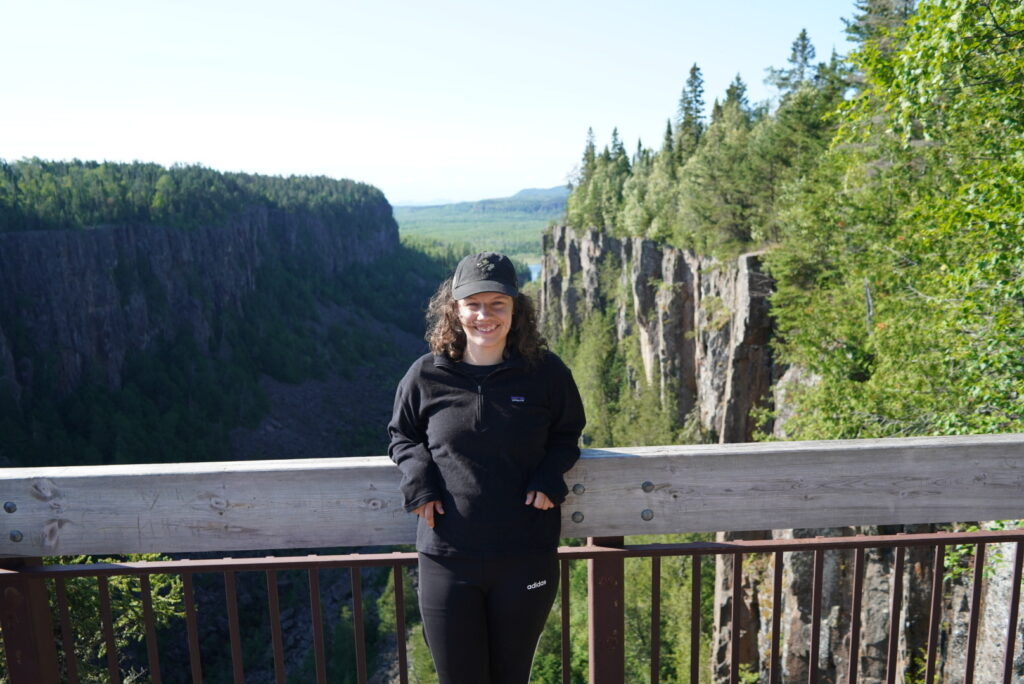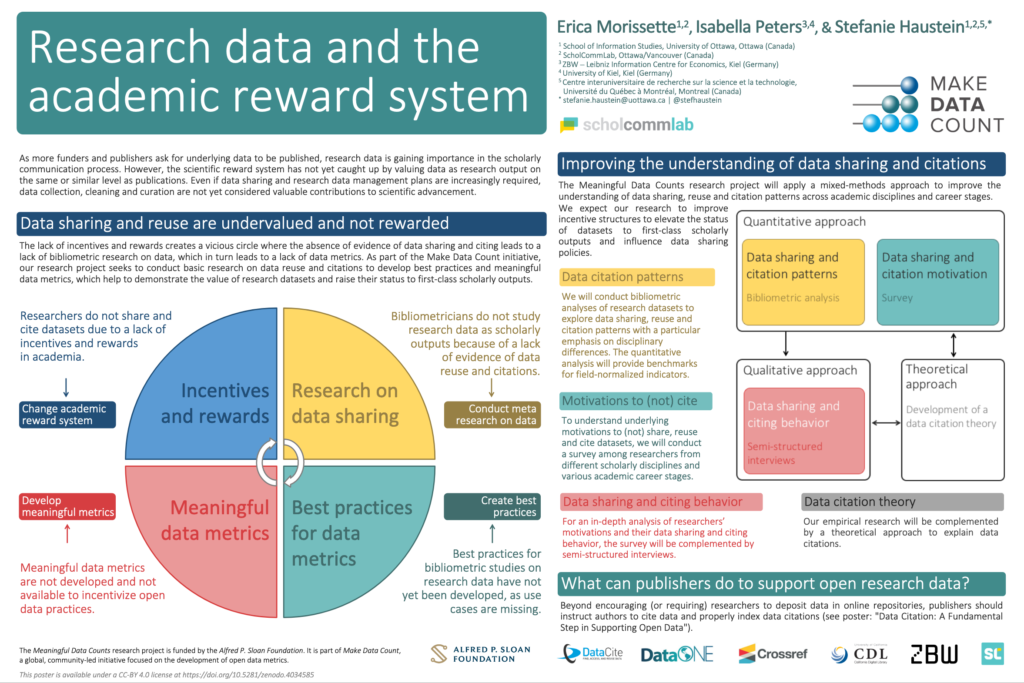Three questions with …. Erica!
Our lab is growing! In our Three Questions series, we’re profiling each of our members and the amazing work they’re doing.
Today, we’re highlighting Erica Morissette, a master’s student in Information Studies at the University of Ottawa, a researcher at the ScholCommLab, and a self declared “nature nerd.”
In this post, she tells us about her work on open data and the academic reward system, and explains how terrible advice can sometimes be life-changing.

Q#1 What are you working on at the lab?
At the lab I’m mostly working on my master’s thesis and spending some time learning from all the different folks through meetings and a few one-on-one discussions. My supervisor is Stefanie Haustein. She brought me into this network, for which I’m super grateful!
While I’ve bounced around trying to find the right topic for my thesis, I’ve settled on trying to classify datasets in Dryad by scholarly discipline. Dryad is a neat open-access repository for research data that works internationally and aims to keep data findable and easy to access. The ability to leverage existing metadata to classify these datasets by discipline will hopefully help researchers find what they need more efficiently, and show what disciplines are producing what data and how much of it. I’m just at the beginning of my thesis journey and this will develop, so stay tuned!
Q#2 Tell us about a recent paper, presentation, or project you’re proud of.
I am quite proud of my very first conference presentation, which took place at the Open Access Scholarly Publishing Association (OASPA) conference in September, 2020. I spoke on research data and the academic reward system, and had a great time! My poster can be found here.

Q#3 What’s the best (or worst) piece of advice you’ve ever received?
The single best and worst advice I have ever received about my academic career was: “You only need to pass, not do well.”
I’ll explain. On one side, this is horrible advice. Aiming to simply pass and get through, for some, can result in a total lack of effort. When I first heard this advice, I had just started my undergrad as a fresh-faced teenager and thought it to be the most ridiculous thing a friend would ever say to me. I wanted to do well, I wanted to impress my professors, and I most certainly wanted my money’s worth!
As the years of studying went on, however, I began to tie my personal value into my grades. I started to believe that if I did not achieve high grades, then I must not be smart enough, good enough, or even belong at university. What I eventually learned as I grew up and continued my academics was that the grades don’t make the person. Yes, it can be important to do well if you plan on continuing your education, but it is certainly not necessary to equate grades to self worth. I saw that you actually don’t need to do well to be a good, smart person. Once I accepted this (and it took years—it sometimes still comes around to haunt me), I was able to fully enjoy my academics and classes. A surprise bonus was that I also started becoming more engaged and received better grades.
“It is certainly not necessary to equate grades to self worth… you actually don’t need to do well to be a good, smart person.”
Erica Morissette
The takeaway from this is in how you read the advice. You could read it as “Do only what you must to pass,” or you could read it more along the lines of “Pass, but don’t hurt yourself doing it.”
Find Erica on Twitter at @beesearching.